Texts: Isaiah 53:4-12 + Psalm 91:9-16 + Hebrews 5:1-10 + Mark 10:35-45
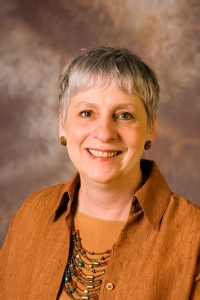
My Hebrew scriptures professor in seminary, Dr. Carol Newsom, had a particular pinching gesture she would make whenever we would try and read Jesus into the Old Testament. “No Jesus!” she would insist, demanding that we take the time to understand what these ancient texts meant to their original audiences before Christians got their hands on them.
Her voice is in my ear this morning as we hear a series of scriptures beginning with Isaiah which present Jesus as a priestly figure who offers up his life as a sacrifice and teaches us that, in the reign of God, it is costly sacrifice not power or rank that marks us as God’s own people.
This passage from Isaiah is probably most familiar to us from Good Friday services during Holy Week. We’ve been conditioned to hear the description of the suffering servant as a prefiguring of the person of Jesus, whose unmerited public suffering and humiliation open a pathway to redemption for all the world. If we take Dr. Newsom’s admonition seriously and let the prophet Isaiah speak with his own voice, we discover that this passage is not pointing ahead in time toward Jesus; and, in fact, isn’t necessarily even pointing at any individual person, but is instead speaking about the whole community of Israel as personified by the suffering servant — a community whose on-going struggles and unmerited sufferings create possibilities for new life and redemption for the surrounding nations.
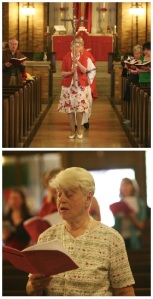
If we take that as a starting point, just the idea that the suffering servant isn’t a particular person but an entire people, and then read the texts that follow through that lens, then I think we learn something about ourselves that is particularly relevant on this day when we are recognizing the faithful servant leadership of two of our longtime members, Kay Deacon and Betty Feilinger.
Listen again, for example, to the question Jesus asks James and John when they ask to sit at his right and left hands, “Are you able to drink the cup that I drink, or be baptized with the baptism that I am baptized with?” It’s an interesting question on a day when we are welcoming members into our congregation through an affirmation of their baptisms. As we talked about the meaning of congregational membership in preparation for these new members’ receptions today, we talked about how membership in a congregation isn’t like membership in a gym or membership at a museum. It’s not the kind of membership best described with a discussion of rights and privileges. Instead, our membership in the church is better understood as being members of a body, intimately related to one another in inseparable ways so that when one aches, we all ache with him; when one grieves, we all grieve with her.
That is what these last two months of testimonies have been driving at, the idea that — while we may each have a different experience of grief and loss when it comes to our immanent departure from this building, our historic home — we all know very well what it is like to have an experience of everything changing, what we lose and what we gain. By sharing our testimonies with each other, by sharing our stories of suffering and loss, we also create new openings for intimacy within the community, for a mutuality that makes our present sufferings more bearable and even transforms them into something new and life-giving.
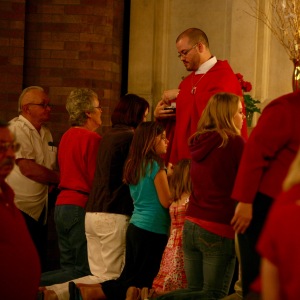 In the verses immediately preceding this morning’s gospel story, Jesus has told his disciples for the third time that he is headed to Jerusalem to confront the powers of this world, and that he knows full well that he is headed there to die. Still unable to hear what that don’t want to hear, James and John ask Jesus for positions of rank and privilege in the coming Jesus administration. They want to be set apart from the crowds that follow Jesus. In his reply about common cups and shared baptisms, Jesus indicates that they’ve utterly missed the point. Being a follower of Jesus isn’t about setting yourself apart from the crowds that surround you, it’s about becoming their servant, identifying with their pain, longing for their liberation. Drinking from the cup and sharing in the baptism are about being members of a body that searches out opportunities to suffer with and alongside all the needless misery humanity inflicts on itself so that it might be transformed. It is about choosing to associate with those the world despises because we remember that we all belong to one another like a hand belongs to a foot, or like an ear belongs to a mouth, or like a mind belongs to a heart. To follow Jesus is to belong to God, which carries with it the priestly vocation of sacrificial giving of all that we have and all that we are.
In the verses immediately preceding this morning’s gospel story, Jesus has told his disciples for the third time that he is headed to Jerusalem to confront the powers of this world, and that he knows full well that he is headed there to die. Still unable to hear what that don’t want to hear, James and John ask Jesus for positions of rank and privilege in the coming Jesus administration. They want to be set apart from the crowds that follow Jesus. In his reply about common cups and shared baptisms, Jesus indicates that they’ve utterly missed the point. Being a follower of Jesus isn’t about setting yourself apart from the crowds that surround you, it’s about becoming their servant, identifying with their pain, longing for their liberation. Drinking from the cup and sharing in the baptism are about being members of a body that searches out opportunities to suffer with and alongside all the needless misery humanity inflicts on itself so that it might be transformed. It is about choosing to associate with those the world despises because we remember that we all belong to one another like a hand belongs to a foot, or like an ear belongs to a mouth, or like a mind belongs to a heart. To follow Jesus is to belong to God, which carries with it the priestly vocation of sacrificial giving of all that we have and all that we are.
So this morning we are honored to be able to recognize two members of our congregation who have modeled for us this kind of sacrificial servant leadership. Unlike James and John, these two women have not asked for this honor, they have simply gone about the business of meeting the needs of others year after year, doing the hard work that needed to be done so that others could enjoy the benefits of belonging to the body of our congregation.
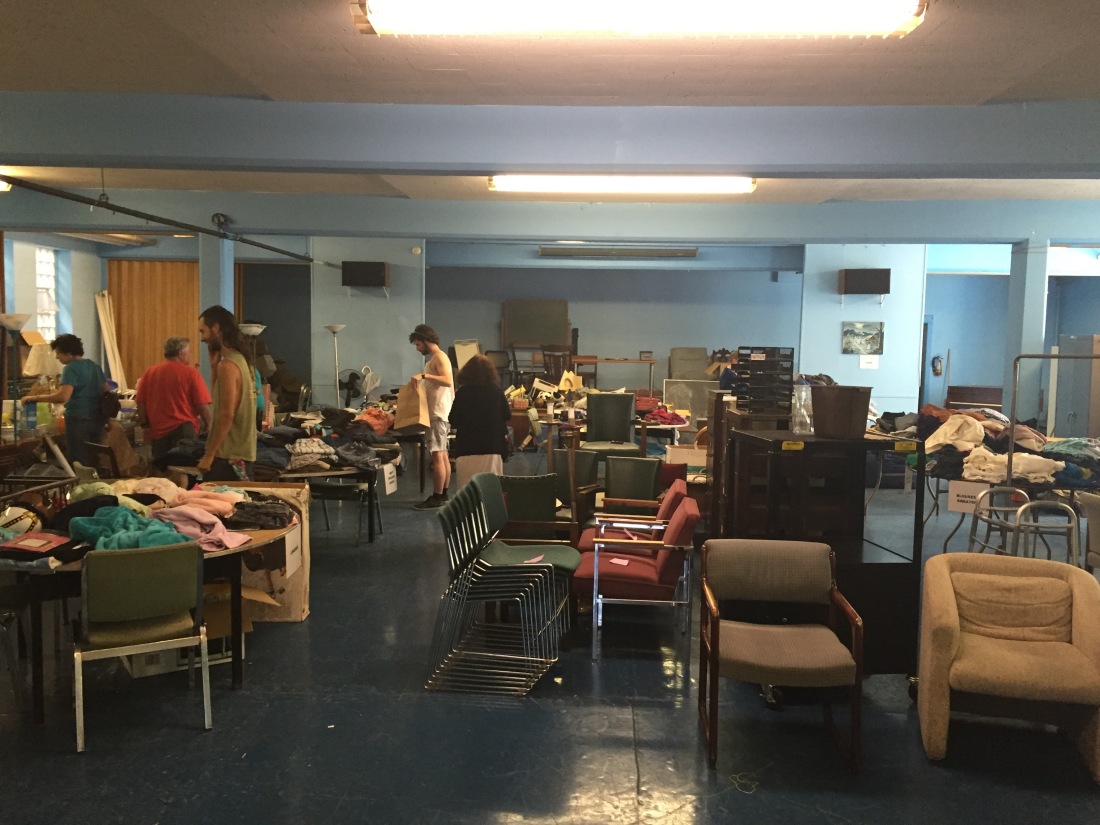
We know that Betty Feilinger has faithfully organized and administrated the bi-annual rummage sale for decades — calling together past and present members and friends of St. Luke’s for an event that has raised tens of thousands of dollars over the years to support this congregation through thick and thin. Her service to our congregation has been quiet and faithful, never seeking recognition for the hard work that she has done. She has practiced her baptism among us through a life of service to her family, her neighborhood and her church, and we are grateful to be members of one body with her.
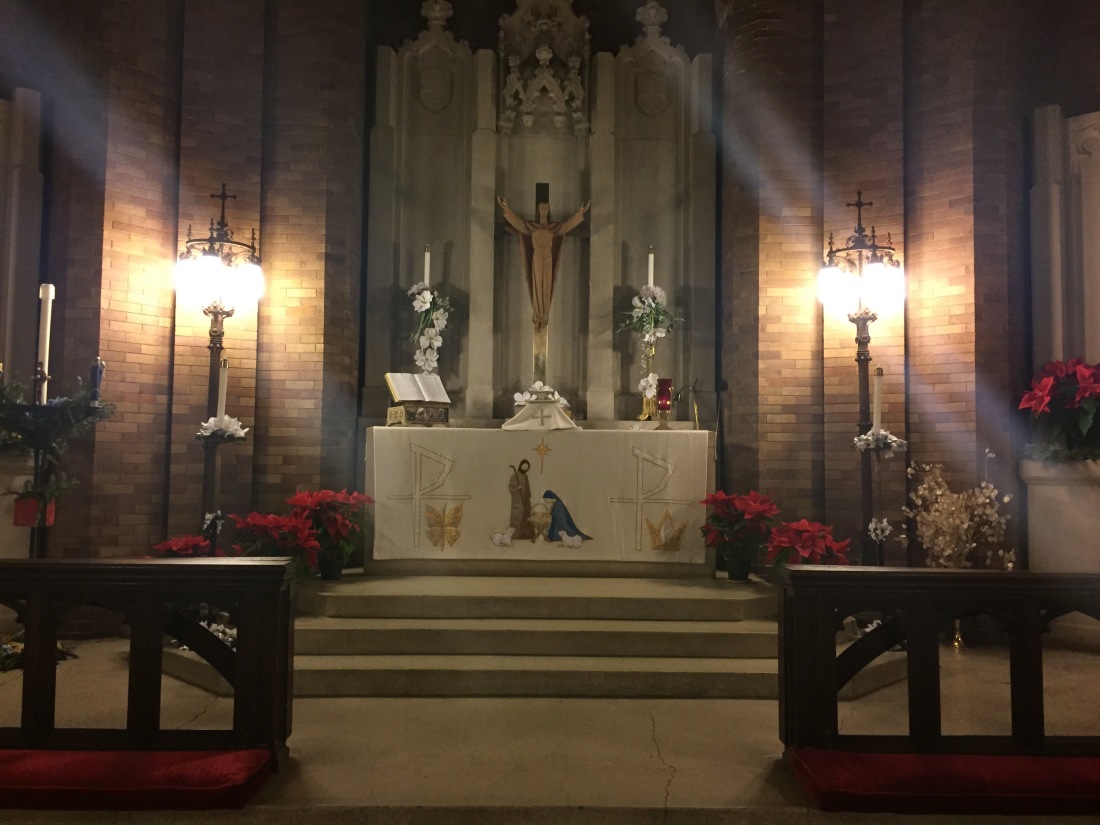
Likewise, we have seen Kay Deacon’s service at the altar week after week and year after year: preparing the sanctuary for weekly worship and for the high holy days at Christmas, Easter and Pentecost. In her dedication to making our worship beautiful she has often labored alone, offering her time as a sacrifice of love. She has modeled what sacrificial love looks like in care for her children and for her church, and we are grateful to be members of one body with her as well.
Betty and Kay have not asked for this recognition and, in the spirit of the one who calls us to service, we do not bestow these honors on them as a way of setting them apart from the rest of the congregation — but as a reminder of the good and joyful work of living our faith, of practicing our baptisms, of being members one with another of the living body of the church. In recognizing them this morning as Deacon Servant Leaders, we are reminding ourselves that we have all been called to lives whose meaning becomes clearest in acts of service to one another and to the world.
So we are grateful this morning to be able to honor the years of service offered by two of our members, even as we welcome others to join us in a legacy of service that has marked this place and that will follow us in to all the places and spaces yet to come. We acknowledge that the life of faith includes suffering, but we believe that the sufferings we share with one another offer new possibilities for hope and healing, offer new strength for the work of peace and justice and liberation. We share our stories of service because we are trustees of the greater story of God’s service to the world, a story that began when God’s breath moved over the waters of creation, and that continues as we practice our baptisms together, recreating the world one life at a time.
Amen.